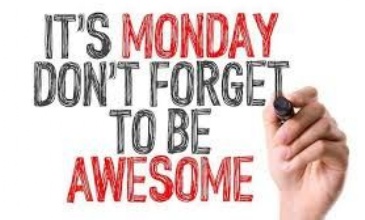Home Learning Monday 20th April

Please see below for Monday's home learning.
Good morning everyone, I hope you all had a wonderful weekend. Please find today's learning below.
Maths: Summer Term, Week 1, Lesson 3, Complements to One
https://whiterosemaths.com/homelearning/year-5/
Watch the lesson and complete the activity.
Reading: Well, today we are going to start our new class novel. I would like you to look at the two attached images below. One is the cover and one is the blurb. I would like us all to act as the 'predictor' today and think about what we think the book will be about. What sort of person do you think Bradley Chalker is? How will things develop with his new friend? Will this book be a comedy or more serious in tone? Tomorrow we will read the first chapter together.
SPaG: Passive verbs. We all know that a verb is an 'action' word. But what is a passive verb? Watch the video then have a go at labelling the sentences then take the quiz.
https://www.bbc.co.uk/bitesize/topics/zwwp8mn/articles/zsx2b82
Topic: ME: Who studies living things?
On Friday we learned about how different animal groups are classified. These groups were constructed by people who are interested in the science of living things and have explored animals for many years. They group animals so that they are easier to study and understand. People who study animals are known as animal behaviourists or naturalists. One very famous naturalist you might have heard of is David Attenborough. Another well-known naturalist is JaneGoodall, here are some videos about her life,
https://www.bbc.co.uk/news/av/world-us-canada-41671681/the-woman-who-taught-us-about-chimps
https://www.youtube.com/watch?v=WjY31JY0qIU
https://www.youtube.com/watch?v=5PwcY_axJwA
Here is some more information about her,
https://kids.kiddle.co/Jane_Goodall
You task is to write a short biography of Jane Goodall. Do you remember how we organised a biography?
Title: Tells us who the biography is about
Introduction: Your introductory paragraph should follow this order: 1. Who is it about and what are they best known for? 2. When did they live? 3. Where did they live? 4. Why are they important? Answer two or more of the questions in one sentence.
Early life, events and achievements: Tell the reader the important things which happened in the person’s childhood and early life and perhaps how these influenced his/her later work.
Later life, events and achievements: Tell the reader the important things which happened in the person’s later life. Tell the events in the order in which they happened. Indicate whether their later life achievements are more or less important than the earlier ones.
Concluding paragraph: Tell the reader the importance or impact of what the person did during his/her life; what we can learn from him/her; how s/he affected others.
